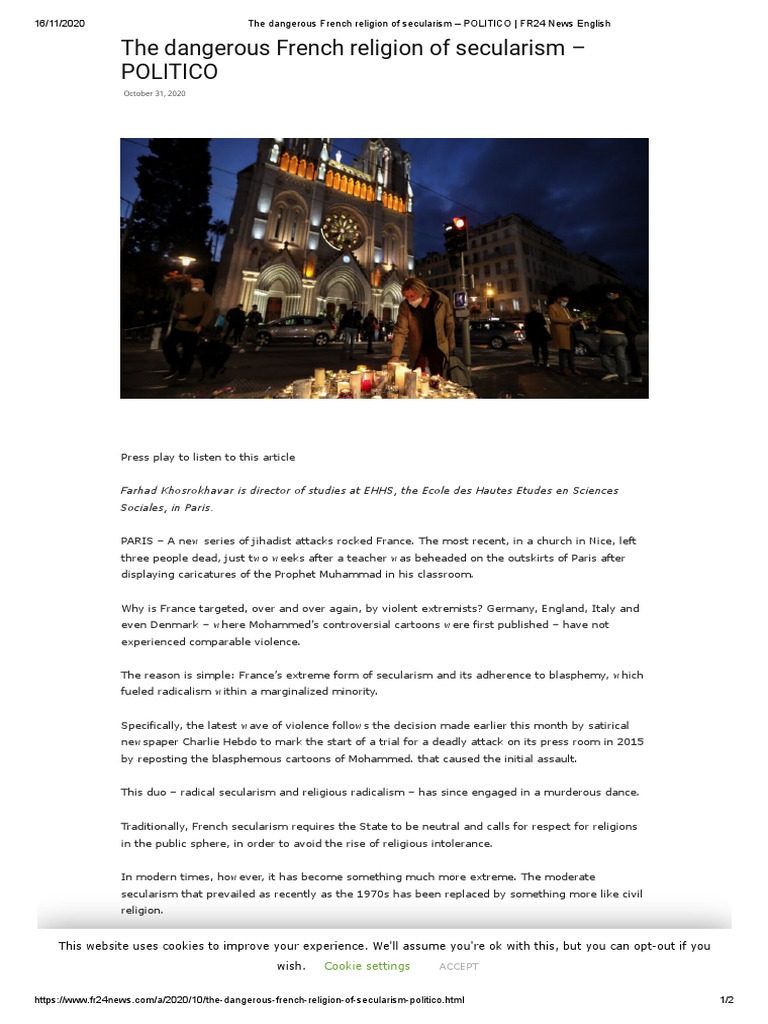France is often characterized by its multifaceted religious landscape, where an intricate tapestry of beliefs and practices coexist. At the heart of this medley lies Christianity, which has dominated the spiritual atmosphere for centuries. However, in recent decades, a significant shift towards secularism has reshaped the very fabric of French society, marking a departure from traditional religious adherence.
Christianity, particularly Roman Catholicism, holds a prominent place in France’s historical and cultural identity. With around 41% of the population identifying as Catholic, the Church has played an instrumental role in shaping both moral values and societal norms. The myriad of magnificent cathedrals, such as the iconic Notre-Dame de Paris, serves as a testament to this profound influence. Catholicism’s rituals, festivals, and holidays punctuate the French calendar, underscoring an enduring legacy that influences community gatherings and cultural practices.
However, this strong Catholic presence is juxtaposed against a backdrop of decreasing attendance and participation in church activities. The rise of secularism, or laïcité, has become a defining characteristic of the French state, promoting the idea that religion and public life should remain separate. This principle has profound implications for religious expression in public spheres and significantly impacts the Christian community’s role in society.
Protestantism, while less prevalent, extends the spectrum of Christianity in France. Comprising various denominations, such as Lutherans, Baptists, and Calvinists, Protestants represent around 2% of the population. The history of Protestantism in France is tumultuous, marked by periods of persecution and tolerance. In the 16th and 17th centuries, Protestant faith faced severe opposition during the Wars of Religion, leading to a significant decline in adherents. However, the Protestant faith has experienced a renaissance in recent years, particularly among younger generations seeking alternative spiritual pathways.
Additionally, the Orthodox Christian community contributes to the religious mosaic. Primarily composed of immigrants from Eastern European countries, the Orthodox population, while relatively small, enriches the spiritual dialogue within France. The Eastern Orthodox Church, with its profound liturgical traditions and rich theological heritage, offers a unique perspective that complements the Western Christianity predominantly practiced in the nation.
In striking contrast to these historical Christian denominations, Islam represents the second-largest religion in France, with approximately 8-10% of the population adhering to the faith. The Muslim presence in France has roots tracing back to colonial ties with North Africa, leading to significant immigration in the 20th century. French Muslims primarily belong to Sunni traditions, and the presence of mosques across the country signifies the faith’s integration into the societal fabric. However, this integration often faces challenges, exacerbated by socio-political tensions that ignite debates about national identity and cultural assimilation.
Judaism, though comprising a smaller segment of the population (around 0.5%), has a rich historical narrative interwoven with France’s broader heritage. France boasts one of the largest Jewish communities in Europe, with a legacy that spans centuries. Yet, like many minority religious groups, French Jews encounter periodic anti-Semitism, an issue that has fortified communal bonds and resilience. Jewish festivals and customs, particularly visible in regions like Alsace, not only enrich the social landscape but also exemplify the challenges faced by minority faiths in a predominantly secular nation.
As secularism increasingly defines the public square, numerous philosophical and ethical questions arise concerning the intersection of religion and governance. The French concept of laïcité advocates for a neutral public realm devoid of religious influence, a principle that echoes throughout laws and policies. This stance, deeply rooted in the Revolution’s ideals, seeks to ensure that no single faith dominates public discourse, thereby fostering an environment of inclusivity. However, critics argue that this strict separation may inadvertently marginalize religious communities, including Christians, from public participation in societal matters.
This ideological chasm sets the stage for a broader discussion on religious freedom and expression. Parents facing restrictions regarding religious symbols in schools or public life express concern that their children are unable to embrace their identities fully. While secularism aims to promote equality, it can sometimes feel like an erosion of cultural identity for deeply rooted religious communities.
The rise of non-religious individuals, especially among younger generations, amplifies the complexities of this dialogue. A growing interest in spirituality outside organized religion is evident, with many young people identifying as “spiritual but not religious.” This demographic shift signifies a broader trend toward individualized belief systems that prioritize personal experience over traditional affiliations. It beckons a reevaluation of how religion, or its absence, plays a role in their lives.
In conclusion, the religious landscape of France is a complex interplay between historical traditions, modern secularism, and emerging beliefs. From the omnipresent influence of Christianity to the vibrant expressions of Islam and Judaism, each faith contributes to the rich cultural tableau of the nation. As secularism continues to shape societal discourse, the challenge lies in striking a balance that honors France’s diverse religious heritage while fostering an atmosphere of mutual respect and understanding among differing belief systems.



